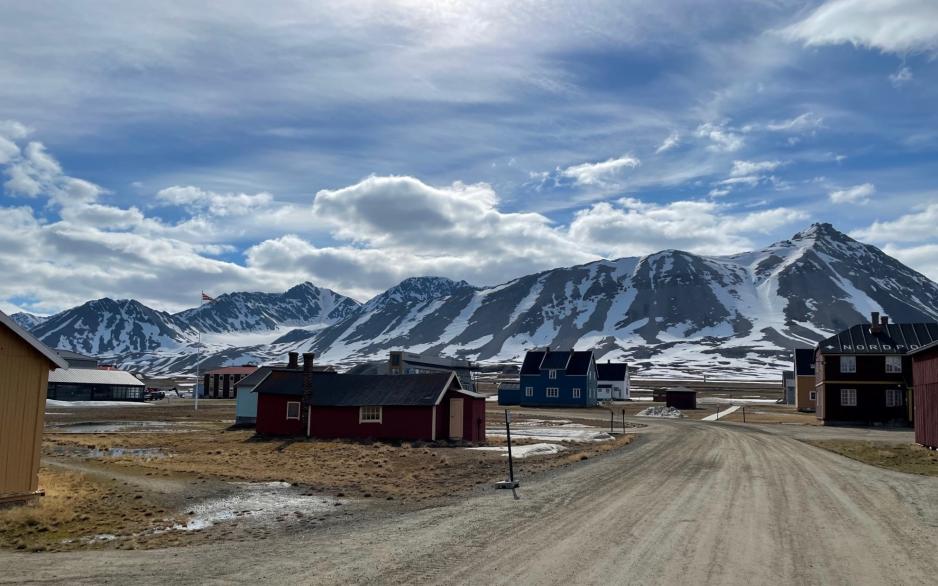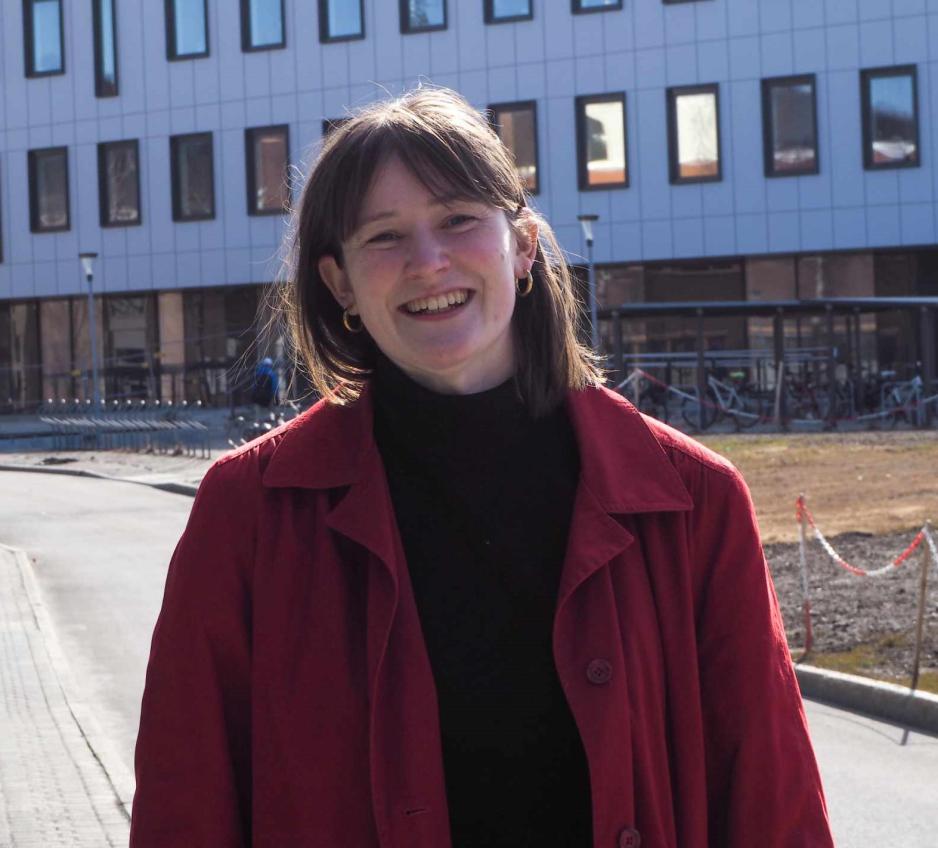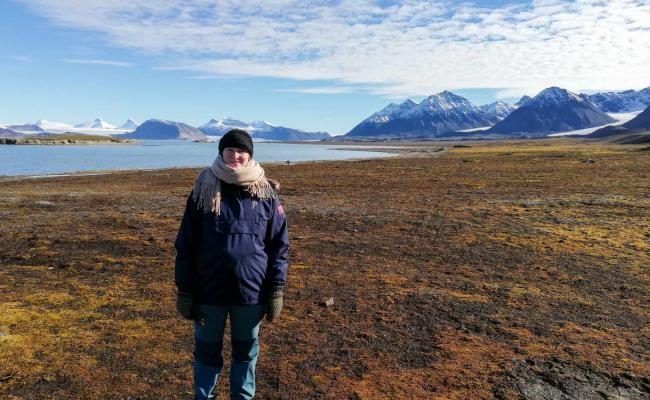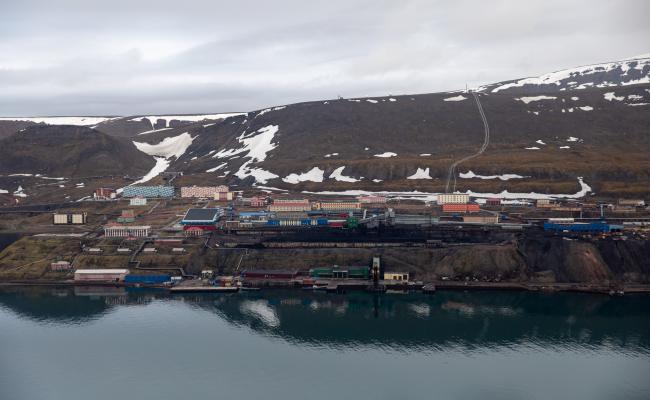Researcher: "New Svalbard White Paper Affirms Norwegian Jurisdiction on Svalbard"

Ny-Ålesund is the center for international research on Svalbard. The government clarifies in the new Svalbard white paper that Ny-Ålesund is a Norwegian research station. (Archive photo: Telenor)
In the new Svalbard white paper, the Norwegian government wants to facilitate international research on the archipelago while simultaneously clarifying Norwegian research leadership. Svalbard researcher Arild Moe says the white paper affirms Norwegian jurisdiction on Svalbard.
Norwegian Minister of Justice Emilie Enger Mehl presented the long-awaited Svalbard white paper at the end of May. And although the previous one came in 2016, an acceleration of the white paper was announced last year.
It was then highlighted that the world was changing, both geopolitically and environmentally, which again made a new Svalbard white paper necessary before 2026.
After the mining industry closed down, tourism and research were appointed the new pillars of the Svalbard community.
The new white paper shows that research and education continue to be important for asserting sovereignty in Svalbard. Research Professor at the Fridtjof Nansen Institute Arild Moe says the white paper primarily affirms Norwegian jurisdiction on the archipelago.
Research and education are two of the most important areas for Norwegian activity and presence on Svalbard.
Prevent other states from consolidating their presence
In a continuation of the 2016 Svalbard white paper, the government primarily wants all research to be based in established local communities and research stations. Therefore, they state that one cannot expect permits to develop new research stations or other large and permanent research infrastructure outside the planning area.
Svalbard researcher Tiril Vold Hansen from Nord University says to High North News that although the government argues that environmental concerns are key here, one can also interpret the measure geopolitically.
"One could also look at this as a measure to prevent foreign research actors from establishing themselves on Svalbard, thereby making it harder for other states to consolidate their presence on Svalbard and in the Arctic. Here, it is natural to highlight Russia's announced plans to develop a research station and research cooperation with Brazil, India, China, and South Africa," says the researcher.

Tiril Vold Hansen is a research fellow at Nord University and is researching Svalbard policies. (Photo: Birgitte Martinussen)
Last year, the Minister for the Development of the Russian Far East and Arctic announced that Trust Arktikugol, the Russian state-owned company on Svalbard, wished to develop an international Arctic research station in cooperation with the so-called BRICS countries Brazil, India, China, and South Africa. Later on, Egypt, Ethiopia, Iran, Saudi Arabia, and the United Arab Emirates joined in.
In March last year, the Russian ambassador Nikolay Korchunov said that Moscow considers it important to strengthen collaboration in the Arctic with non-Arctic states as the existing cooperation formats, such as the Arctic Council, are expected to be weakened. According to the ambassador, the BRICS countries are among the many countries wanting to cooperate with Russia in the Arctic.
Research Professor Arild Moe says in an interview with High North News that he does not interpret this part of the white paper explicitly targeting a possible BRICS cooperation.
"The Russian mining company Arktikugol has two large properties, Barentsburg and Pydamiden. There are zoning plans for these areas, and space has been allocated for research activity," he says.
"The idea to establish a research station in Pyramiden comes from the Russian mining company – as a measure to consolidate its presence. So far, no official decision has been made to establish such a station. One must remember that there already is a research station in Barentsburg, which will unlikely benefit from resources being transferred to Pyramiden – which is impractically placed anyway," the researcher states and continues:
"It is difficult to see what scientific interest states such as China and India could have in spending resources on a new center. Research institutions from these countries already operate in Ny-Ålesynd. The question then becomes whether they could have political motivations. Friction in the relationship with Norway will be a factor to consider."
Establishing a Svalbard office
The Norwegian government also reports that it will strengthen its research leadership on Svalbard by establishing a Svalbard Research Office, which will be run by the Research Council of Norway and the Norwegian Polar Institute.
"I interpret this as a change of names more than anything," says Moe.
"The Research Council of Norway now has the Svalbard office, and it is said that the new office will have no financial consequences. The Research Council will be the central partner here, but the Polar Institute will also participate."
"So I see that primarily as a name change, but perhaps with a bit more authority. By calling it the Svalbard Research Office, it has more authority. It is a small clarification that this is a part of the Norwegian Svalbard management and not just an instrument for the Research Council. It is the same people with a slightly larger hat."
Tiril Vold Hansen also considers the measure an assertion of Norwegian leadership.
"I interpret establishing the Svalbard office as a way to strengthen Norwegian leadership and coordination of the Svalbard research," says Hansen.
"It is important to Norwegian authorities to emphasize that research, in addition to other activity on Svalbard, is subject to Norwegian laws and regulations. In the same way, Norwegian authorities want to be clear that Ny-Ålesund – and Svalbard, by extension – is part of Norway. That Ny-Ålesund is explicitly referred to as "a Norwegian research station," in contrast to the previous white paper, is an expression of this."
Ny-Ålesund has previously been pointed out as the center of international research on Svalbard. In addition to Norway, research institutions from France, the UK, Italy, China, South Korea, the Netherlands, India, and Japan have permanent research stations in Ny-Ålesund, managed by the state-owned company Kings Bay A/S.
The Norwegian government's aims for research and education on Svalbard
- Research and higher education will be an important part of Norwegian operations on Svalbard in the coming years.
- Svalbard will be further developed as a platform for international research, higher education, and environmental surveillance.
- The archipelago's infrastructure and unique research opportunities will be exploited even better than today. The infrastructure must be supplemented with measures to further strengthen Svalbard's position within international knowledge development.
- Norway is to be a central actor in knowledge development on and about Svalbard, not just a facilitator. Its academic leading role must be secured through weight and quality in Norwegian polar research.
- All activity must be in line with an overarching consideration of the environment. Research and higher education within climate/environment are natural focus areas, and this research is dependent on keeping the area as untouched by local influences as possible.
Aim of Norwegian employment and students
Both Hansen and Moe highlight that the desire to employ more Norwegian professionals and increase the share of Norwegian students points to research and education continue to be important measures in the coming years.
"It is new this year that Norwegian authorities are considering an objective for the employment of Norwegian professionals at UNIS, various measures to increase the share of Norwegian students at UNIS, and various measures to make more Norwegian researchers utilize the Ny-Ålesund Research Station," says Hansen.
"Thus, there is a clear desire to continue using research and education as a means in the time coming to support the aim of maintaining Norwegian communities on the archipelago – and thereby emphasize Norwegian sovereignty on Svalbard," explains Hansen.
The white paper also reveals that UNIS will be the only provider of higher education in Svalbard.
"I interpret this as no opportunities to establish educational programs, for example, for BRICS students in Pyramiden. That would not comply with Norwegian policy, and permits for the establishment of locations would not be given," says Moe and continues:
"But this does not have to be particularly aimed at the Russians either. Given the interest in the Arctic and Svalbard's availability, one could imagine that commercial actors would want to establish educational offers in Svalbard."
Gathering researchers from different disciplines and countries to cooperate on new knowledge and development and is highly valuable.
An idealistic narrative
Earlier this year, Hansen published a research article titled «Geopolitics, diplomacy, or idealistic research? Framing the research community in Ny-Ålesund.»
She argued that the Norwegian government's primary objective with the research community in Ny-Ålesund is to maintain the settlement as a tool for asserting sovereignty on Svalbard.
She writes that when Norwegian authorities decided to strengthen their host role in Ny-Ålesund, they argued that it would lead to higher-quality research. However, Hansen believes such political changes are set in an idealistic framework and mainly about promoting geopolitical interests.
Do you believe Norwegian authorities continue to exploit an idealistic narrative in this Svalbard white paper to further their geopolitical interests?
"Yes, I think Norwegian authorities continue to exploit an idealistic, partly environmental political, narrative to further its geopolitical interests. With that said, Norwegian authorities – as before – want to facilitate international research operations on Svalbard. International research on Svalbard is of great value, not least because it provides important knowledge on climate change and environmental impact in polar areas," concludes Hansen.




